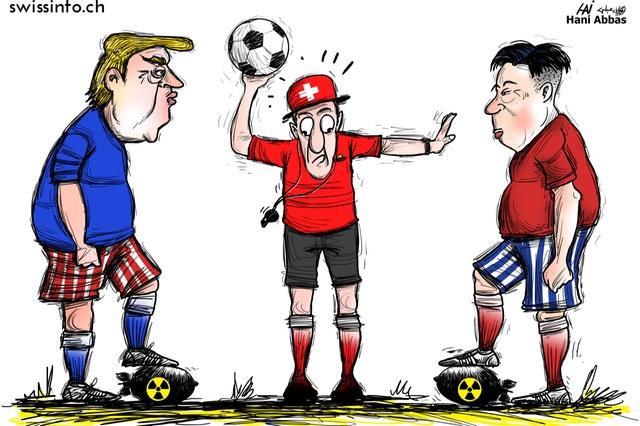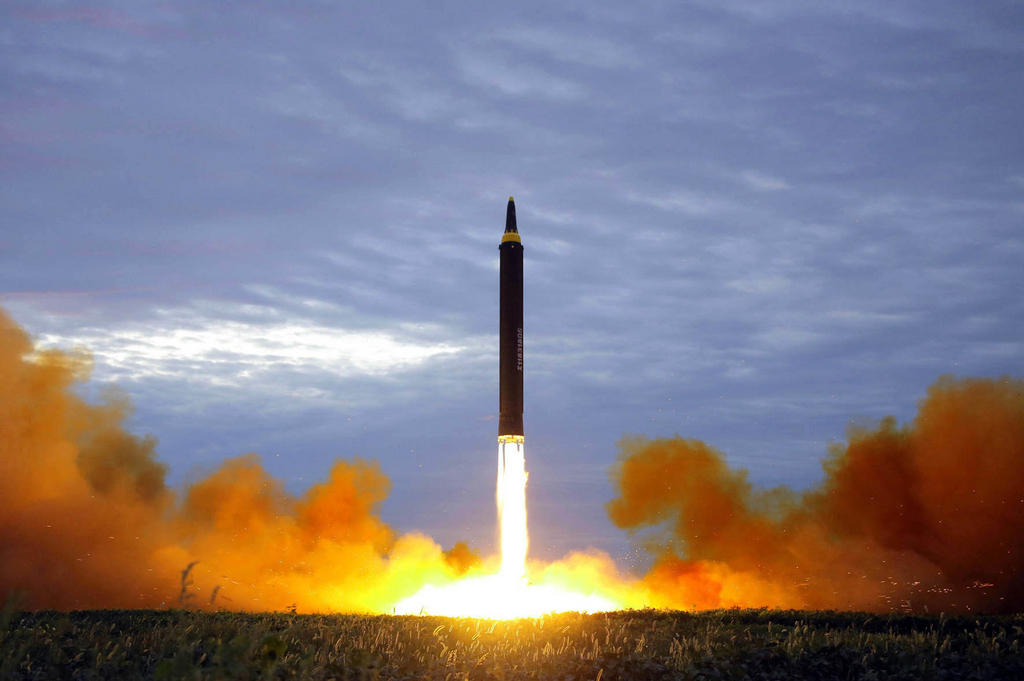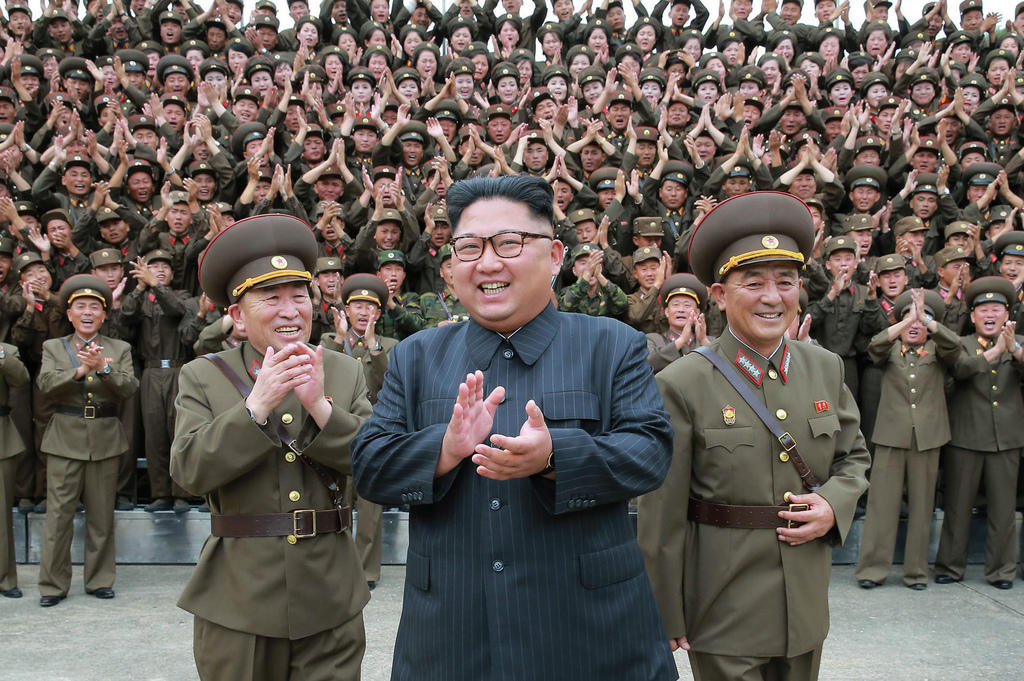Switzerland holds off signing nuclear ban treaty

Around 45-50 nations are set to sign the first-ever treaty to ban nuclear weapons on Wednesday. Switzerland says it needs time to reflect on its official position despite adopting the convention in July.
On Wednesday, various heads of state and foreign ministers, led by Brazil, began signing the Treaty on the Prohibition of Nuclear WeaponsExternal link during the United Nations General Assembly session in New York.
The text needs to be signed and ratified by at least 50 countries before coming into effect, a process that could take some time.
Switzerland will not sign right now, as the Swiss foreign ministry says it is evaluating the text – despite having adopted it, a step that signifies non-binding approval.
On July 7, 122 states, including Switzerland, voted to adopt the convention at a UN General Assembly meeting in New York boycotted by all nuclear-armed nations. At that time, Switzerland said it hoped the new treaty would “contribute towards efforts” for a nuclear-free world.
Last December, the Alpine nation abstained during a vote on the issue at the UN General Assembly but later took part in treaty negotiations in New York.
However, Swiss uncertainty arises from the fact that it believes the treaty on the prohibition of nuclear weapons could potentially affect other international texts such as the Nuclear Non-Proliferation TreatyExternal link, which recognises the US, Russia, France, China and Britain as nuclear powers.

More
Switzerland keeps US and North Korea talking
Bern says it does not want a new convention that reduces “ratifying states’ margin for manoeuvre” when cooperating with nuclear powers.
“The treaty could reinforce the polarisation that today characterises nuclear disarmament efforts,” it claims.
‘Largely symbolic’
The new treaty text requires of all ratifying countries “never under any circumstances to develop, test, produce, manufacture, otherwise acquire, possess or stockpile nuclear weapons or other nuclear explosive devices”.
It also bans any transfer or use of nuclear weapons or nuclear explosive devices – and the threat to use such weapons. It will enter into force when 50 states formally sign up.
Critics say the new treaty is largely symbolic. None of the nine countries known or believed to possess nuclear weapons – the United States, Russia, Britain, China, France, India, Pakistan, North Korea and Israel – is supporting the treaty. Many of their allies also did not attend the July meeting.
All NATO members boycotted the negotiations except for the Netherlands, which has US nuclear weapons on its territory and voted against the treaty.
The nuclear powers say the treaty is unrealistic and will have no impact on reducing current stockpiles of nuclear weapons (15,000 warheads).
“The nuclear ban treaty is a bad idea,” US disarmament ambassador Robert Wood told reporters in Geneva last week.
“It will not make the world a safer place or reduce stockpiles. It will have no practical impact on nuclear disarmament. What is most concerning is this treaty will only exacerbate divisions within the non-proliferation and disarmament communities that are already quite stark.”
‘Gravest challenge’
Meanwhile, the United States and other nuclear powers want to strengthen and reaffirm the nearly 50-year-old Nuclear Non-Proliferation Treaty, considered the cornerstone of global non-proliferation efforts. That pact seeks to prevent the spread of atomic arms beyond the five original weapons powers: the US, Russia, Britain, France and China.
Wood said the international community was facing the “gravest challenge” for some time with North Korea’s nuclear weapons programme and ballistic missile activity. He said the ban treaty “would do nothing to impact or improve the situation”.
The ambassador said the US wanted to exhaust every diplomatic option on North Korea’s nuclear and missile programmes and to see loopholes in the North Korean sanctions regime closed.
But tension was again ratcheted up when US President Donald Trump on Tuesday vowed to “totally destroy” North Korea unless Pyongyang backed down from its nuclear challenge, mocking North Korean leader Kim Jong Un as a “rocket man” on a suicide mission.
North Korea fired a second missile over Japan far out into the Pacific Ocean last Friday, according to South Korean and Japanese officials, deepening tension after Pyongyang’s recent test of its sixth and most powerful nuclear bomb.

In compliance with the JTI standards
More: SWI swissinfo.ch certified by the Journalism Trust Initiative












You can find an overview of ongoing debates with our journalists here . Please join us!
If you want to start a conversation about a topic raised in this article or want to report factual errors, email us at english@swissinfo.ch.